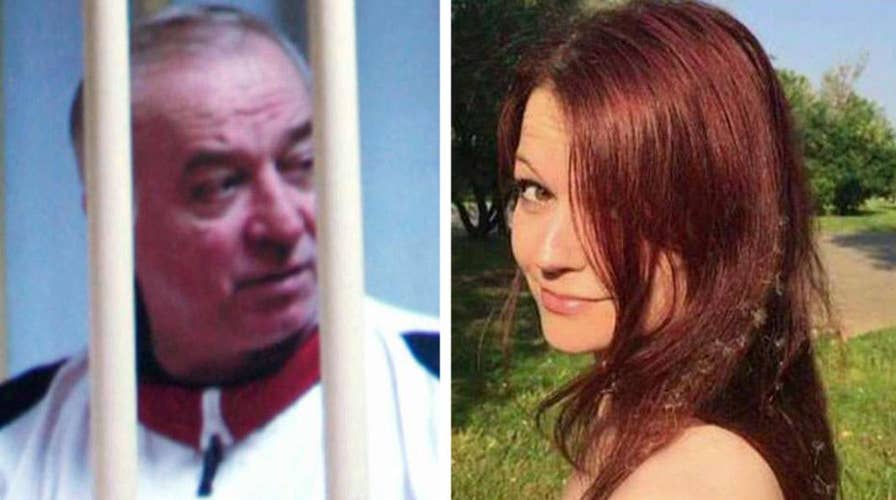Police: Russian ex-spy encountered nerve agent at front door
U.K. authorities identified the highest concentration of the nerve agent at the front door of the Skripal's house.
The daughter of a former Russian spy who was poisoned with a nerve agent earlier this month is now in stable condition, British authorities said Thursday.
Yulia Skripal, 33, is “improving rapidly and is no longer in critical condition,” Dr. Christine Blanshard of Salisbury District Hospital said. Yulia's father, Sergei Skripal, 66, was also poisoned in the incident and remains in critical condition.
"I'm pleased to be able to report an improvement in the condition of Yulia Skripal," Blanshard said. "She has responded well to treatment but continues to receive expert clinical care 24 hours a day."
POISONED RUSSIAN EX-SPY, DAUGHTER HAVE SLIM CHANCE OF SURVIVING, NIECE SAYS
Sergei, a former Russian spy, and Yulia were poisoned by a military-grade nerve agent in Salisbury, Britain. The father and daughter were found unconscious on a park bench in the town. A police officer exposed to the substance during the investigation was hospitalized and released last week.
Following the incident, countries across the world joined the U.K. in blaming Russia for the attack. Many, including the United States, have taken diplomatic action against Moscow. At least 21 countries have expelled more than 135 Russian diplomats they suspect of being spies.
Russia has adamantly denied any involvement in the attack.
POISONED EX-SPY LIKELY LATEST VICTIM IN LONG LINE OF KREMLIN-ORDERED HITS
Officials believe Russia is behind the attack partly because the nerve agent used was developed by the Soviet Union. Russian officials complain that Britain hasn't presented evidence to back up the accusation.
Skripal was imprisoned in Russia after he sold secrets to British intelligence, but was released in a 2010 spy swap and moved to Britain.
On Monday, British Prime Minister Theresa May said Sergei and Yulia may never recover from the attack. Viktoria Skripal, Sergei’s niece, said there was a “slim chance” the two would survive.
“Out of 99 percent, I have maybe 1 percent hope,” she told the BBC. “Whatever [nerve agent] was used, it has given them a very small chance of survival. But they’re going to be invalids for the rest of their lives.”
Fox News' Lucia Suarez Sang and the Associated Press contributed to this report.










































